
Before the pandemic, I wrote that semiconductors for too long were taken for granted – powering so many life-changing digital devices but underappreciated and underrecognized. Today, following the chip shortage and massive supply chain disruptions that left many electronics manufacturers worldwide scrambling for semiconductors, the industry has become a shining star.
Governments around the globe, more acutely aware than ever before of the critical importance of chips to their economic health and national security, are jockeying for advantage in building out their semiconductor supply chains to help ensure uninterrupted supply even in the worst of times. Rising geopolitical tensions have only added fuel to the fire. While there is intense focus on the promise of artificial intelligence (AI) as an engine of transformative applications such as ChatGPT, the central role of semiconductors is again being given short shrift – this time in accelerating the AI revolution, as I noted in a recent co-authored article.
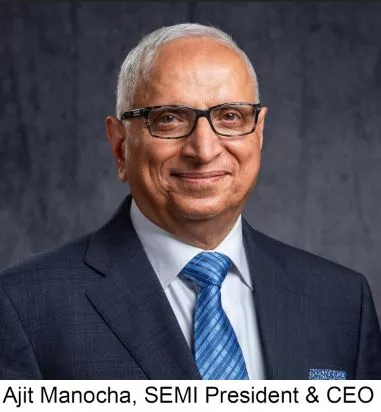 The opportunities for semiconductor industry growth are abundant and there for the taking. While the global industry experienced about a 10% revenue decline to $520 billion in 2023, signs point to a return to growth in 2024 with analyst projections ranging from an increase of 9% to 16%. The SEMI Market Intelligence Team also expects the semiconductor equipment and materials segments to rebound from 2023 declines.
The opportunities for semiconductor industry growth are abundant and there for the taking. While the global industry experienced about a 10% revenue decline to $520 billion in 2023, signs point to a return to growth in 2024 with analyst projections ranging from an increase of 9% to 16%. The SEMI Market Intelligence Team also expects the semiconductor equipment and materials segments to rebound from 2023 declines.
Like many others, I remain bullish on the industry reaching $1 trillion around the end of this decade. Fast-growing demand for a diverse range of disruptive technologies and emerging applications – from AI, autonomous and electric vehicles, and high-performance computing to 6G and autonomous machines – will fuel this historic expansion. To support anticipated industry growth, 109 new fabs are expected to come online between 2022 and 2026, according to our most recent SEMI World Fab Forecast report. Fully 89 of these fabs have already either begun operation, equipping or construction, and of course more fabs will be needed through the end of the decade to support burgeoning demand for chips.
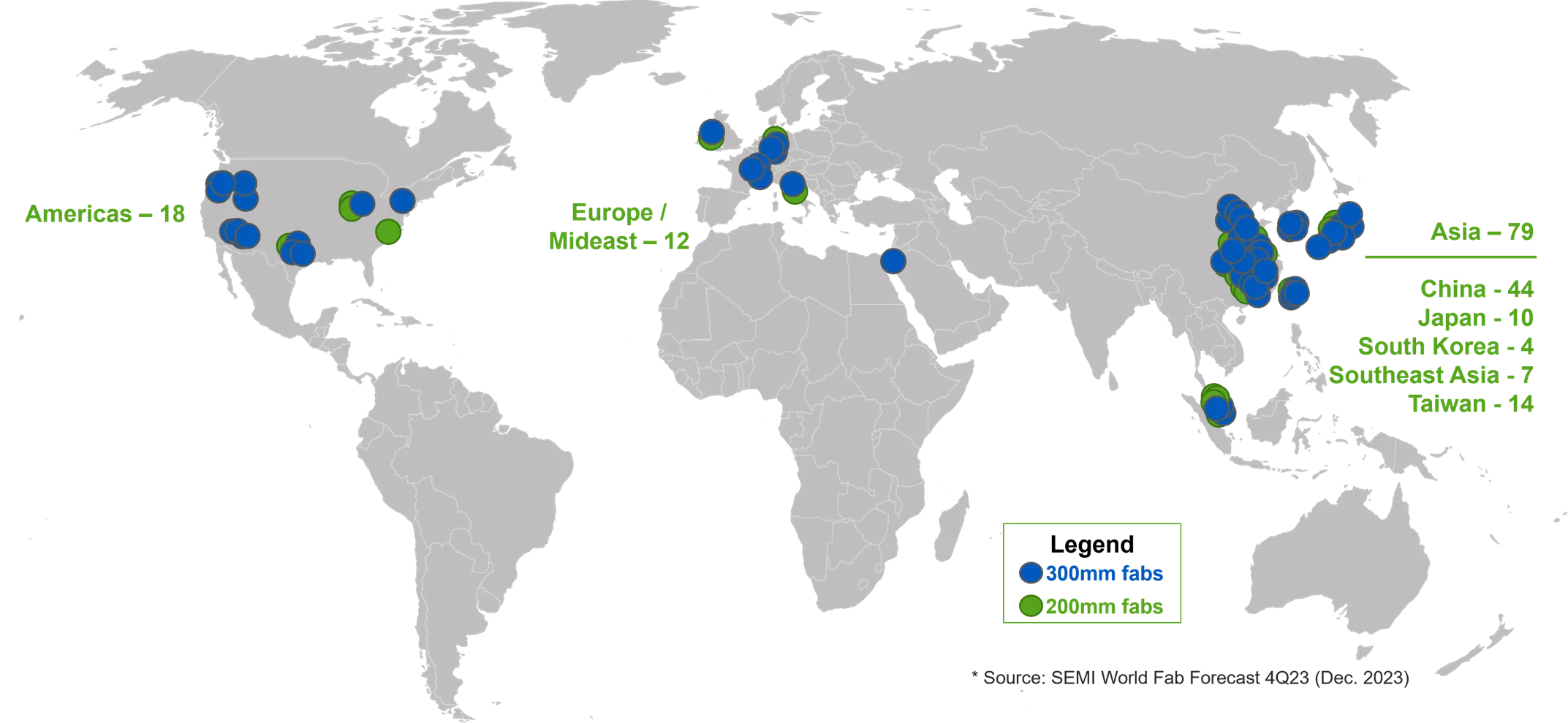
SEMI World Fab Forecast: 109 new fabs worldwide expected to come online
from 2022-2026.
Of course, the semiconductor industry will need to overcome significant headwinds on its path to $1 trillion, and many of them are exacerbated by the push to add production capacity:
- The Talent Gap: The industry remains in the grip of a global talent shortage. We project the industry will need 1 million additional workers by 2030.
- Sustainability Pressure: Investors, customers, government agencies, top talent and other key stakeholders expect the industry to make significant progress on sustainability goals on reducing greenhouse gas emissions, energy and water consumption, as well as the use of hazardous chemicals.
- Supply Chain Disruptions: With semiconductor supply chains uniquely global, complex, interdependent and sensitive to disruptions, geopolitical tensions, climate change and other factors are adding to our challenges.
- The Geopolitical and Regulatory Landscape: Governments around the globe recognize the strategic importance of chipmaking to their economies and national security. Industry players must devote more time and effort navigating government regulations and capitalizing on opportunities for incentives that help the industry address concerns around talent, sustainability and supply chain continuity.
Clearly, these are issues that cannot be addressed by any single executive, company or country. And these are just peripheral challenges to the industry’s pursuit of innovations for advanced semiconductors – the most complex feats of engineering in human history that are the building blocks for the many technologies we depend on in our daily lives. Industry collaboration within and across international borders is critical to overcoming these headwinds.
Over the course of my seven-year tenure as President and CEO of SEMI, we have worked to build the premier platform for global semiconductor industry collaboration to address its shared opportunities and challenges. Based on guidance from our industry boards and representatives from member companies on top concerns, SEMI has established initiatives to focus on four critical challenges: Workforce Development, Sustainability Initiative, Supply Chain Management Initiative and Global Advocacy. For 2024, a top-level SEMI corporate goal is to advance each of these key initiatives.
Each had a robust impact in 2023, guided by inputs from more than 700 member company executives worldwide who participate in various SEMI boards, governing councils and advisory committees. Following are a few top outcomes of these efforts.
Helping expand the talent pipeline
- Connected with more than 25,000 military veterans on transitioning to careers in the industry in the SEMI VetWorks program’s first year of regional hiring events
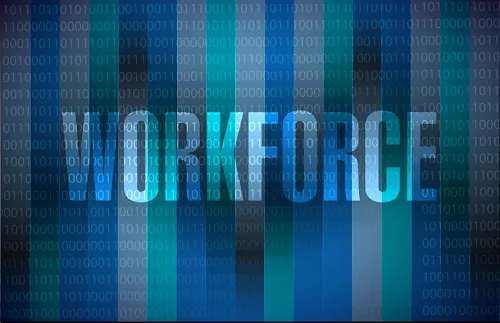 Fast-tracking industry careers with SEMI Career & Apprenticeship Network (SCAN) program, which launched first-of-its-kind registered apprenticeship programs with California and Michigan. Multiple U.S. states provided more than $15 million in grants to advance additional workforce development activities.
Fast-tracking industry careers with SEMI Career & Apprenticeship Network (SCAN) program, which launched first-of-its-kind registered apprenticeship programs with California and Michigan. Multiple U.S. states provided more than $15 million in grants to advance additional workforce development activities.- Industry awareness campaigns. reach over 3.5 million students.
- Ramped various SEMI Workforce Development programs including Diversity, Equity and Inclusion initiatives in multiple regions.
- Launched SEMI University online learning platform offering 525 courses to help the industry’s workforce develop critical skills.
Synchronizing industry on sustainability goals and best practices
- Semiconductor Climate Consortium (SCC) expanded to 90+ companies and formed its Governing Council and five focused working groups.
 Issued first SCC report of the semiconductor ecosystem’s greenhouse gas (GHG) emissions profile with an in-depth analysis of the industry’s carbon emissions sources priority-ranked for companies to address.
Issued first SCC report of the semiconductor ecosystem’s greenhouse gas (GHG) emissions profile with an in-depth analysis of the industry’s carbon emissions sources priority-ranked for companies to address.- Aiming to reduce global semiconductor ecosystem carbon emissions, SEMI and the SCC created the Energy Collaborative to understand and clear roadblocks to the installation of low-carbon energy sources in the Asia-Pacific region.
- Brought innovative green technology solutions to reduce water and energy consumption to the industry through the Startups for Sustainable Semiconductors (S3) initiative.
Driving alignment to mitigate supply chain disruptions
- Established Industry Advisory Council and expanded the initiative’s governing body to 14 global companies representing all key supply chain segments.
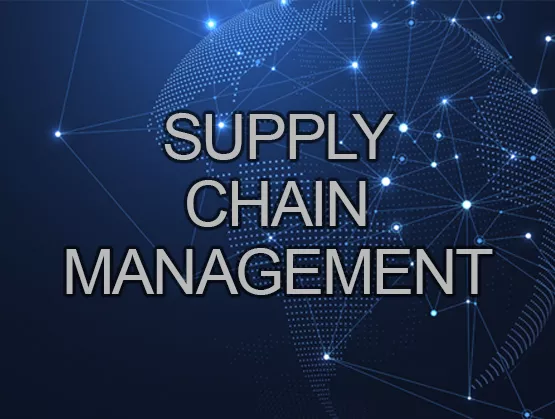 Formed two working groups, one focused on Resiliency and the other on Agility with supply chain-wide participation.
Formed two working groups, one focused on Resiliency and the other on Agility with supply chain-wide participation.- Released first white paper that examines current supply chain challenges and the criticality of transparency, collaboration, and information sharing to mitigate disruptions.
- Organized two executive panel discussions at SEMICON West 2022 and 2023 to raise awareness of critical supply chain management challenges.
Unifying the industry's voice
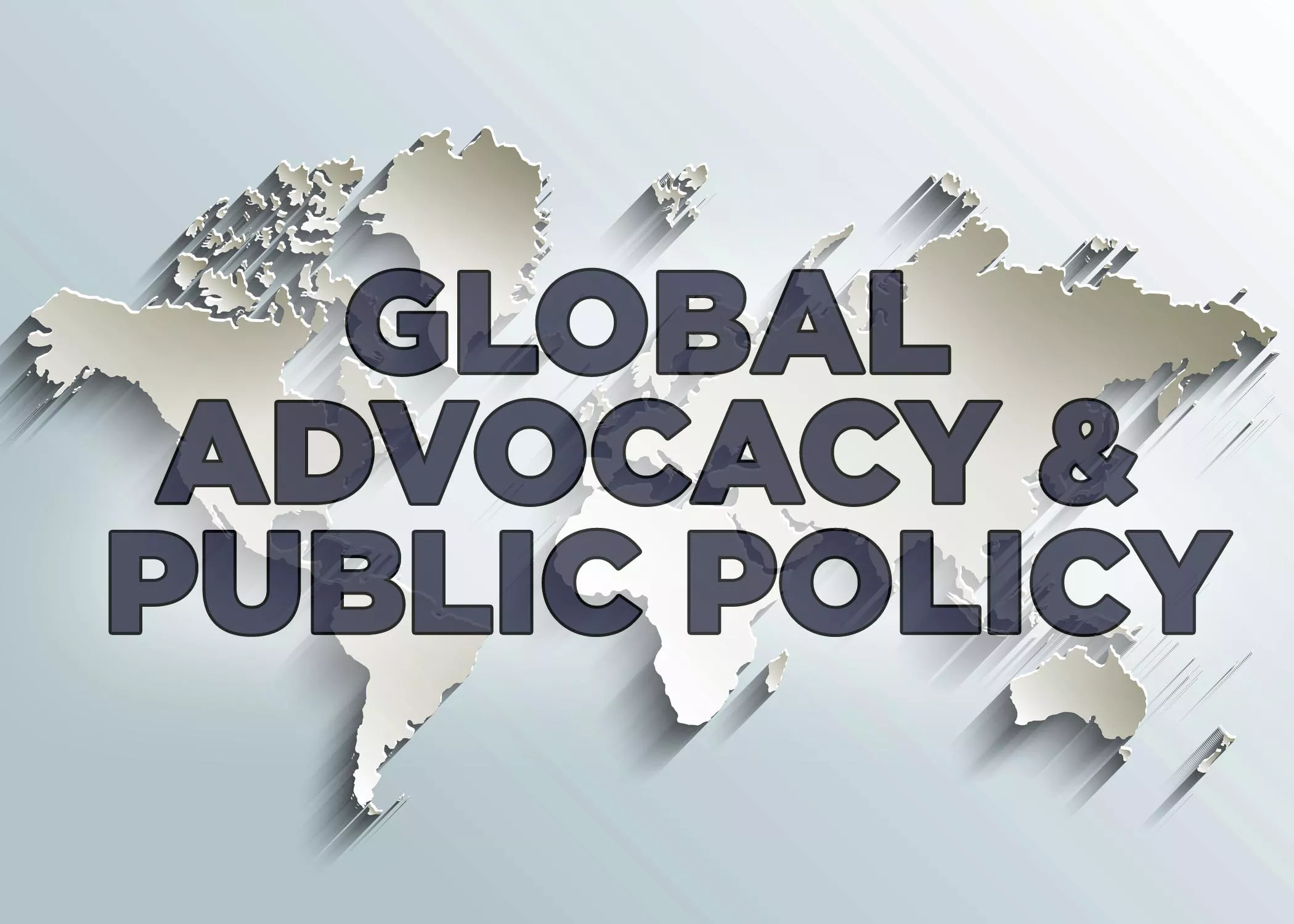
Drove multilateral alignment on sustainability, chemical regulations, workforce development and supply chain management challenges and opportunities at the inaugural SEMI International Policy Summit (SIPS) that convened a historic meeting of top industry executives and government policymakers from key regions around the globe. A follow-up SIPS in Brussels, Belgium on March 4-5, 2024, will continue the momentum of those discussions.
- Coordinated Global Advocacy efforts and shared knowledge in working groups on Environment, Health & Safety, and advisory committees on Tax and Trade & Export Controls.
Kept members abreast of CHIPS Act developments and other government incentives worldwide and provided guidance on application processes at events and webinars in an effort to help them secure funding.
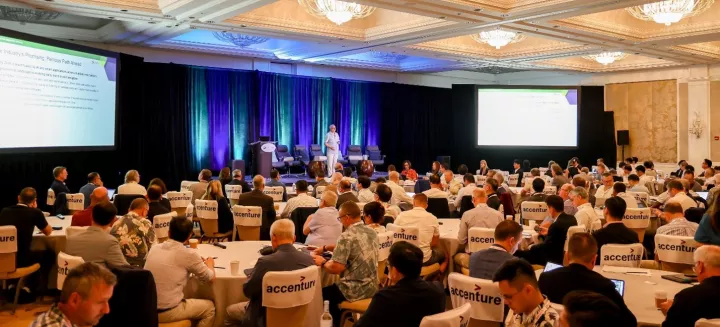
SEMI President and CEO Ajit Manocha reports key outcomes of the inaugural 2023 SEMI International Trade Partners Conference.
Programs to accelerate growth and innovation
- Marked the 50th anniversary of the SEMI International Standards Program with new standards and emerging collaborations on vital industry focus areas including cybersecurity, sustainability, advanced packaging and heterogeneous integration.
- Drew more than 300,000 attendees worldwide to SEMICON expositions and additional SEMI conferences to facilitate industry collaboration and innovation and help uncover new business opportunities. Also staged CEO Summit Keynote programs to help educate the industry on the latest developments and trends.
- Won the support of the government of India to launch SEMICON India, September 11-13, 2024, in New Delhi, to help connect the global ecosystem to this promising growth market and rich source of talent.
- Helped members track technology application trends, harness the power of AI, and collaborate through SEMI Technology Communities and Smart Initiatives on Data-AI, Manufacturing, MedTech and Mobility
The chip industry has reimagined itself time and again over its storied history, and it is time for us to renew ourselves once again. And, yes, we can through the collaboration and innovation that has brought the industry to a new inflection point.
Across our programs and other offerings, SEMI members are coming together to accelerate the pace of global industry growth and reach $1 trillion and beyond. Look for recurring updates on the state of the semiconductor industry and our progress in helping to overcome headwinds and strengthen tailwinds. Join our 3,000+ member companies to help support the cause of driving technology advances that are improving the lives of people around the world.
Discover how SEMI membership can help support your business growth.
Ajit Manocha is President and CEO of SEMI.